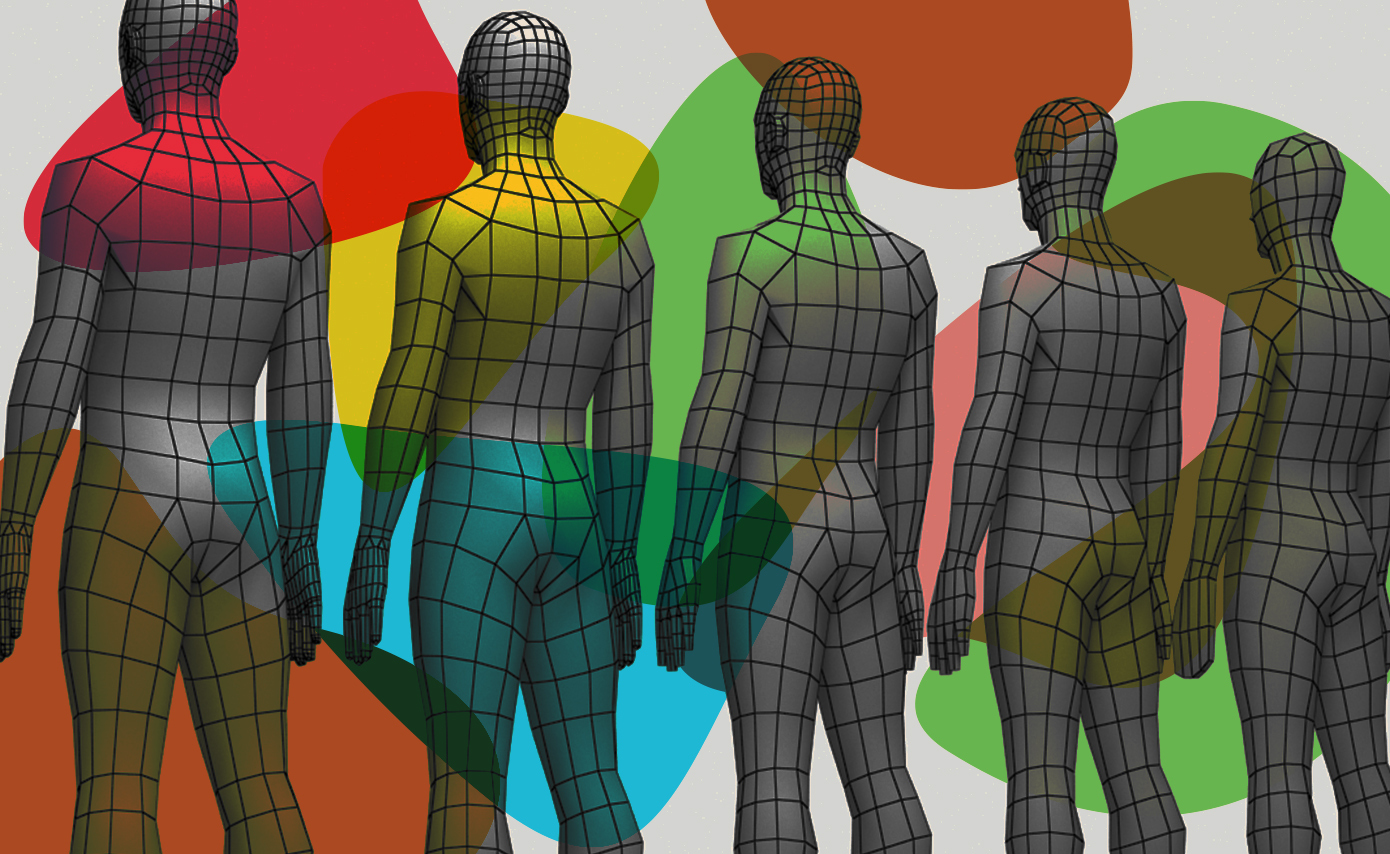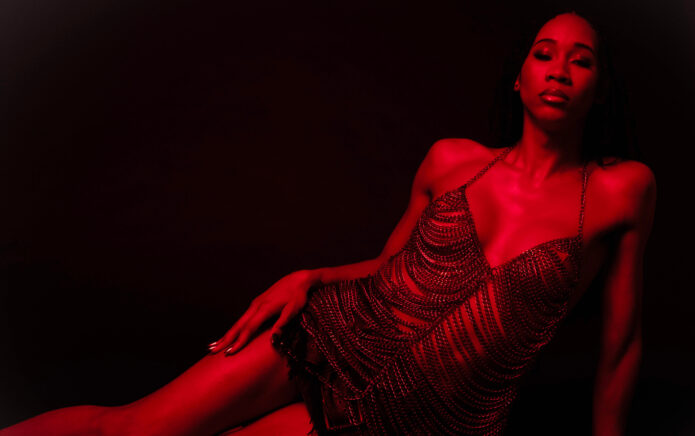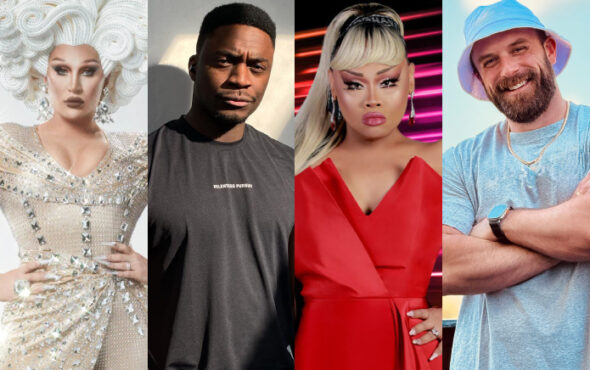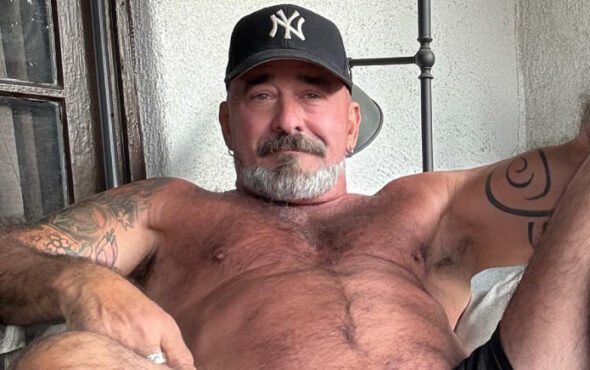
During summer 2020, we all saw the resurgence of the Black Lives Matter movement but how many of us truly engaged, learned, grew and questioned our behaviour and choices? The LGBTQ+ community was reminded that the freedoms many of us enjoy today are the direct result of queer Black people. I spoke with 25 men about their race-based sexual ‘preference’, how the events of the summer have or haven’t shifted their position, and if racism in the LGBTQ+ community can be tackled.
Hearing ‘it’s just my preference’ in relation to sexual desirability is commonplace, and the conversation about its racist intonations is on-going, but perhaps the events of 2020 have put us in a particularly generative space to have a conversation about race?
The term ‘sexual racism’ has its roots in the 1970s but was fully explored and defined by professor Charles Herbert Stember to in fact be the ‘sexual rejection of the racial minority’. Further studies by others have explored other aspects of race-based sexual ‘preference’, most notably those who purposely date outside of their own race, defined as ‘racial fetishism’.
I spoke with Leon*, a Birmingham-based gay Black man who has, until recently, exclusively dated outside of his race. “While I had questioned my dating choices before the pandemic, it was during lockdown, the cultural conversation on race and Black Lives Matter [that] I had space to really ask myself: ‘why’ I dated the men I had.” While Leon and I spoke at length about the response from friends and family of his previous partners making relationships difficult and the impact on his mental health and self-worth, it was only at the very end of our conversation he said: “The world consistently tells Black men we have little value. Over time I have learned to value myself, and in turn, other Black men have become more attractive to me. It’s been the most shocking revelation of how racism and white supremacy can affect all people. I now question what it was about me these men ‘actually’ found attractive.”
It was a concept that came up in my conversation with Victor*, who had moved to the UK from the Caribbean. “Coming from a predominantly Black culture to London was a real culture shock. I’ve had to devise ways to figure out if white men are fetishising my dark skin, or if my skin is simply part of the package that is me. It, at times, has been exhausting.”
Disregarding an entire group of people because of their race is racism, no matter one’s attempt to rebrand it as preference - or anything else.
While everyone understands feelings of rejection, there is emerging evidence that race-based rejection is increasingly detrimental to the mental and physical health of LGBTQ+ BIPOC people.
The mental health impact of race-based rejection was a theme that appeared in all my conversations with LGBTQ+ BIPOC’s. I spoke with Professor Rusi Jaspal, Chair in Psychology at Nottingham Trent University, and author of The Social Psychology of Gay Men (2019), in which he shares his research and findings on the challenges of being a gay man of colour in contemporary Britain – simultaneously grappling with homophobia, racism, Britishness, and ethnic identity. He says: “Ethnic minority gay and bisexual men are at disproportionately high risk of poor mental health partly because they tend to face more stigma from their families, and ethnic and religious communities. These groups matter to them. Many hope to find acceptance on the gay scene but instead encounter racism. This racism comes in many distinct forms – from rejection because of one’s ethnicity to fetishization because of their ethnicity. These experiences in gay spaces can make ethnic minority gay and bisexual men derive low self-esteem and feel that they are somewhat flawed because of their ethnicity.”
I ask professor Jaspal if racism in the LGBTQ+ community can be tackled? “There needs to be much more visibility of ethnic minority people. [A point I explored in a previous piece: ‘I asked 25 ‘Hot Guy’ Instagram pages why there were no men of colour’] Empathy is important too – people who have never faced racism should try to understand how it feels for those singled out or denigrated solely because of their ethnicity. This may prompt some to re-think the things that say and do.”
As I screen the list of respondents, I was really interested in speaking to Steven*, a 40-year-old Black man from Aberdeen who initially appeared very anti-white. During our conversation, Steven said, “I’ve stopped dating white men because for so long I confused their want to have sex with me with an attraction to me as a person. It took a toll on my self-worth, I wondered why I couldn’t turn what seemed like a great connection and attraction into anything other than behind-closed-doors sex. I now refuse to expose my body to anyone who is anti-Black in any way, and that does include other Black men.” So as it turned out, what I read as anti-whiteness was in fact, anti-racism.
So what of white men who date outside of their race? During the research phase of this piece, I received an email that moved me, yet I struggled to fully unpick its themes. The passage that stood out was:
“My husband and I [both white] both say that the less attractive Black man is still more handsome and sexy than a good looking white man. For us, often is their voice, could be their body curves, but it’s mainly down to the colour of the skin and face features. So yes. Colour of the skin. Let’s say it loud! For centuries Black skin has been denigrated, and this still happens. So why not talking about Black skin as a plus, as an attractive feature? Is this generalising? Maybe. [sic]”
The idea of seeking out ‘unattractive’ Black men remains unquestionably predatory. Identifying something that could be considered a vulnerability and leveraging that for one’s own sexual fulfilment is indefensible. The power dynamic speaks for itself, and what does it say of white men who think this predatory behaviour is justifiable? This cements the points Professor Jaspal makes about the impact on our mental health. While sex should be enjoyed, there is a time we all must be found attractive for our complete and full selves – not just what we can offer in the bedroom to satisfy someone else’s desires.
I spoke with Ivan*, an Eastern European living in London who had some strong views about Asian men, yet felt that these views were far removed from his attraction to Black men. “I’m not attracted to Asian men, just their culture is so different. They have different values.” I reminded Ivan that Asia is a very large continent made up of diverse cultures with wildly differing values and racism wherever it is targeted, is still racism. There are 4.5+ billion people across 48 countries in Asia, not to mention those raised in the West. I wondered if Ivan could hear himself, so I repeated the question. “I’ve never even interacted with Asian gay men,” Ivan told me. I asked, how, and why, he would have such strong opinions about people he’s never interacted with? “I’m comfortable having preferences because I know what I like”. I told Ivan, ‘It’s a uniquely horrible feeling being in a space and you’re disregarded because of your race,’ he understood that can’t be a nice feeling yet went on to say: “I guess if you haven’t been exposed to certain things you can’t grow to like them.”
Do we need to desire someone to treat them with respect?
Disregarding an entire group of people because of their race is racism, no matter one’s attempt to rebrand it as preference – or anything else. Identifying our own prejudices isn’t easy; we all have them. But we must all take the time to understand where they come from so we can grow from that place.
I spent a long and demanding time on the phone with Matt*, a white man from East London, who believes preference and racism are very different. “How I treat people in life and who I like to have sex with are very different.” Matt explained his love for different genres of music, his diverse friendship group and colleagues, yet asked; “What am I supposed to do? Go out and sleep with Black people just to prove I’m not a racist?” I politely asked him not to do that. I asked Matt why he was so angry: “I’m fed up of being told that because I don’t fancy Black or Asian people I’m racist.” I asked Matt if he felt it was racist to not give someone a job opportunity due to their race: “Yes, absolutely.” I then asked why a potentially rewarding relationship or sexual encounter was any different? I never got the answer to that question, as Matt felt it was best to end the conversation there.
The point here isn’t for us all to sleep with all kinds of different people as a demonstration of our impartiality, but to ask ourselves: if there is a group of people exclusively excluded because of their race, why is that?
Is it possible to have race-based sexual ‘preference’ without being racist outside of the bedroom in the LGBTQ+ community? It’s a question I put to Dr. Lee Valls, a London-based psychologist who said: “The perpetrators of this will believe so. The difficulty is, in spaces where desire and our bodies are currency, any racial screening means many people will be treated differently – if they end up in your bedroom or not.”
Jason* is a guy I met nearly two years ago. I never reached out to him despite his interest. He was surprised to hear from me and when I said I was working on this piece he audibly cringed. “Yes, all my boyfriends have been Black – some of them reached out to me [during the height of BLM] to explain some of the problematic things I’d said or done, and I’ve had to deal with it.” I asked Jason if he feels he’d fetishised Black men. “I’ve struggled with that, but at times, yes. But if I’m honest I still don’t know where the line is”. He went on to say, that being a white gay man who likes Black men was like “being a kid in a candy shop, I was young and didn’t treat people well. It was a mixture of white privilege, youth and being sex-focused – it wasn’t my intention, I just wanted to have fun.”
As lockdown eased, I bumped into Ivan at a socially-distanced BBQ. He pulled me aside and apologised. It was a sobering moment for both of us. He explained that after our conversation he couldn’t help but consider what he’d said and how he felt about Asian men. He went on to say: “I understand that grouping together and discounting an entire race of people is racism” and ”I realise I have some work to do”. It challenged me to allow Ivan to grow as a person and as much as I agree it isn’t the responsibility of POC to educate others, there is some value in having a dialogue, even if it seems, at that moment, the other person isn’t being receptive.
Racism in our community goes beyond who we do or don’t date. The point here isn’t for us all to sleep with all kinds of different people as a demonstration of our impartiality, but to ask ourselves: if there is a group of people exclusively excluded because of their race, why is that? How do we treat those people?
*names and identifying details have been changed to protect the privacy of individuals



